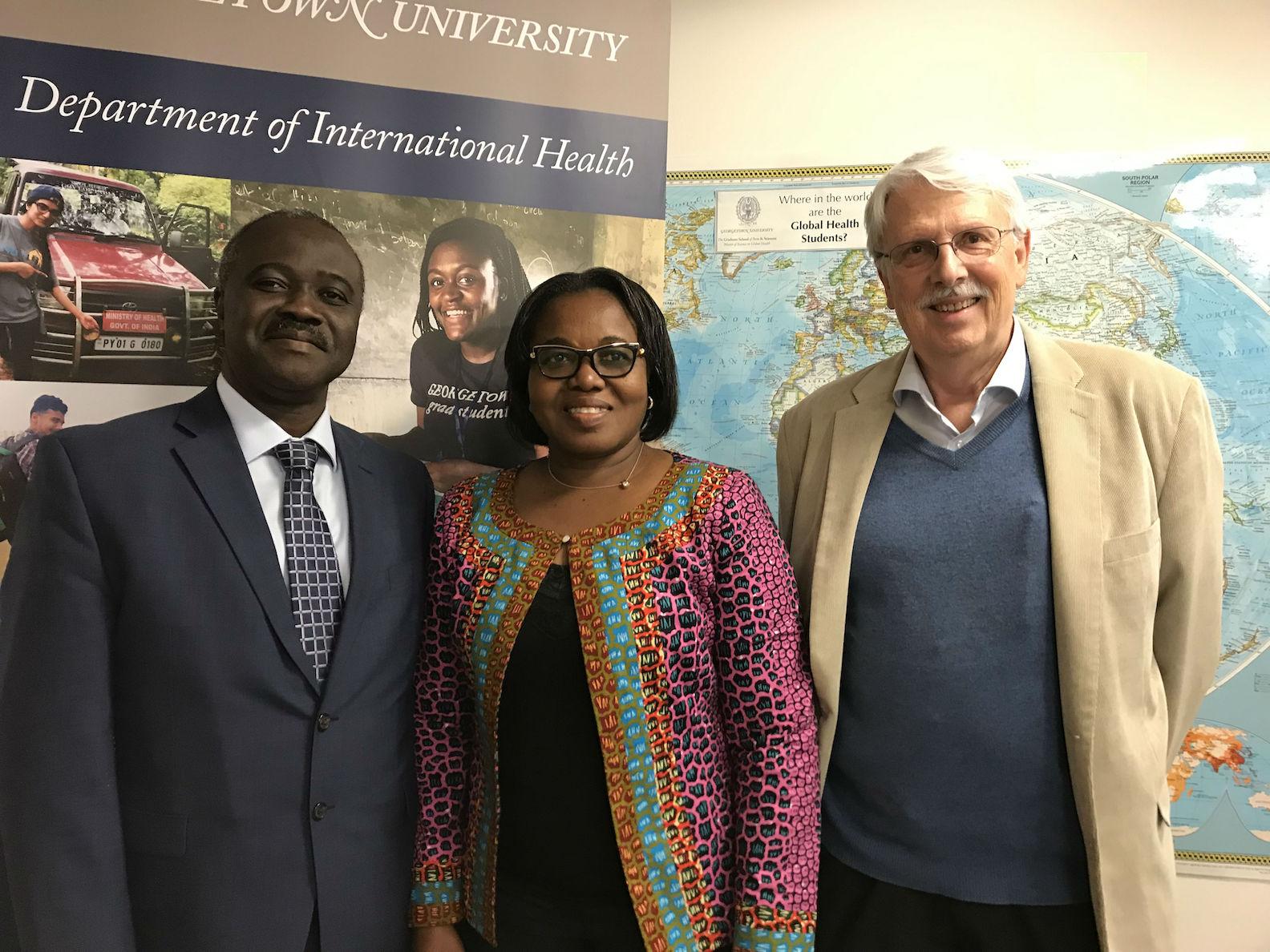Preceptors from Ghana Visit Georgetown

Posted in News Story
Professor John Gyapong, Vice Chancellor of the University of Health and Allied Sciences in Ghana, spoke with the Georgetown community last Monday evening. Through presenting “Urban Health in Ghana: Exploring the Trends and Potential Areas for Collaboration”, Professor Gyapong provided a comprehensive overview of urbanization and its implications for health in Ghana.
Professor Gyapong set the scene by presenting a brief introduction to the country of Ghana, including population, geographical, and economic data. Through this introduction, the increase in urban populations and the associated opportunities and challenges for health were immediately apparent. Further, Professor Gyapong also provided a primer on Ghana’s healthcare system, covering key elements such as structure, financing, access, and maternal and child health indicators. With the audience then having a better understanding of the Ghanaian health landscape, the focus of Professor Gyapong’s talk concentrated on urban health. While urbanization can work to improve health through infrastructure development and better access to education, large inequities exist between sub-populations of urban areas. In particular, the urban poor face challenges in financial access to healthcare, environmental health and sanitation, as well as higher rates of communicable diseases. Additional health risks facing urban residents include non-communicable diseases and motor traffic accidents. Using zoned data, Professor Gyapong demonstrated higher levels of morbidity and mortality in the Southern areas of Ghana, which are more urbanized.
After presenting the multitude of health effects from urbanization, he concluded his talk with three points for the audience to note: urbanization in Ghana poses serious public health challenges; while health infrastructure generally improves with urbanization, access remains a challenge for the urban poor, and; urbanization is reshaping disease patterns and burden in Ghana. Professor Gyapong then clearly advocated for an increased focus on urban health in health research and health professional training.
The Georgetown Urban Health Collaborative was excited to welcome Professor Gyapong to Georgetown and thanks him for the opportunity to bring together a wide range of students, researchers and faculty and for highlighting a pertinent area in global health.
Dr. John Gyapong did not come to Washington, DC alone! His wife, Dr. Margaret Gyapong, serves as a preceptor for Georgetown graduate students at the University of Health and Allied Sciences in Ho. During their visit, Dr. (Margaret) Gyapong met with four students who will complete their field research module in Ho this Fall. She was also interviewed on the Department’s Podcast.
Additionally, both attended a class taught by Dr. Bernhard Liese — International Health Partnerships and Disease Control — where they provided insight on the topic from a West African perspective.
The Department is honored that Drs. Gyapong and Gyapong were able to join us on campus for several days.
